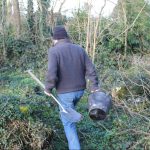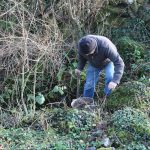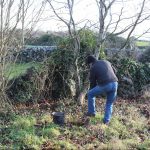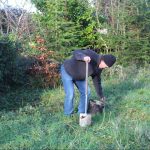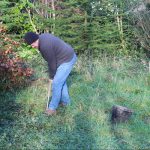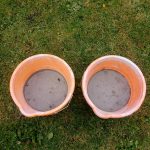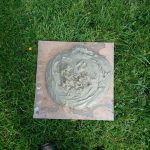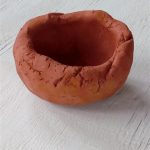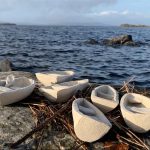Lost Worlds, Moycullen
Cormac O’Neill and Tamaru Hunt-Joshi
Our ‘Lost Worlds’ proposal has been quite transformed due to the current pandemic. We had planned to use this clay in our project to connect people to the place they live. The names of fields are part of local knowledge that will be lost unless the names of the fields are collected from older people in the community. Our plan was to make objects that represented the field names, such as objects connected to events or plaques representing the names of the fields.
We have located local sources of clay, and dug the clay from some of the fields in Moycullen. We have dried, sieved and cleaned and dried it over a period of time to produce some bags of clay that were ready to use. As our older community are all isolated at home during the pandemic and our schools have strict rules of access, and social distancing etc, our hope to connect the young and older communities was not possible. Our intent was to connect young and old to foster a generational transfer of knowledge. Despite these difficulties, we we wanted to use the clay dug in the fields as part of the Clay Journey community project to use clay dug from its source, formed into a boat and either returning it to its source (the river) or transforming it into a fired work. Cormac and Tamaru both independently made clay boats using the clay dug from the fields and launched the boats into the Corrib river at Knock Ferry, a boat launch nearby to their studios. The boats were of raw clay and were returned to the river. This was a smaller version of the intended boat launch planned in October where boats made by participants were to have been launched into the sea at the mouth of the Corrib to represent the concepts of migration in many forms, their disintegration in water demonstrating the transience and fragility of our human journey. We also plan to use the dug clay to produce objects connected to our own practice and connection to the landscape we work in.

